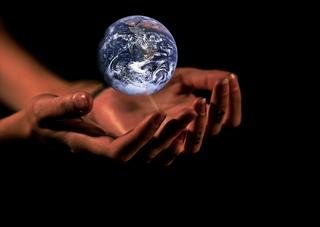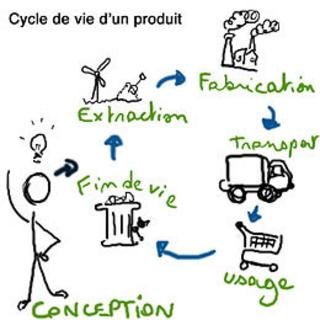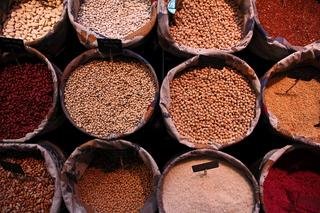Zero Waste: a hype or a necessity of our era?
For several months, I hear every day about "Zero waste". I watched videos of people, and sometimes families, who produce only a small jar of waste per year. I discovered books offering a whole bunch of tips to replace daily disposable products in order to reduce the corresponding amount to waste. In addition, DIY tutorials offering various ways to recycle old sweaters or old isolated socks are also in order, together with plenty of other things.
While I was writing this article, I thought the expression was pretty self-explanatory. But as always, I wanted to know more about it... and I finally do learn several new things that I will share with you!

[image credits: Pixabay]
I discovered first that what I took for a simple environmental movement or a philosophy of life was actually much larger than that.
Zero Waste is a holistic strategy that aims to reduce and sustainably manage waste everywhere. Such an approach can thus be both useful and necessary, and must be thought off starting from the design of an object to its primary purpose, as well as with the aim for reuse it in one other way or the other. Both manufacturers and consumers have a role to play as we are all actors in our society.

[image credits: Wikipedia]
Those who defend the Zero Waste are both individuals, groups and associations. They are everywhere in the world and fight to change mentalities and habits of life. Their goal is to raise awareness about the urgency of reducing the waste we produce. Even at the end of its life, a product may find a new use and be given a second life. If not, we can ask the question about the real necessity or usefulness of the product. Would have been other, less polluting, alternatives?
Zero Waste defenders also suggest concrete alternatives that can be adopted by governments, industry and individuals.
We can summarize the strategy in three main points
1. Changing the production methods

[image credits:Pixabay]
The idea is to produce less stuff, but more efficiently, so that one could preserve the natural resources of our planet and energy. Among other things, sorting our waste to ensure a more efficient recycling is one of the key points so that one could limit the usage of incineration.
Advances in ecodesign already help to modify the production methods to make them less polluting, promoting along the same lines the usage of recyclable materials.
2. Maximize the use of goods

[image credits: Pixabay]
Many goods are thought as obsolete because of a hype instead of because they are really unusable anymore. In the Zero Waste movement, there is a philosophy of sharing and pooling the goods so that one could use them as much as possible. The packaging of the goods is also important, and one can target systems that allow reusable rather than disposable stuff.
Among the examples we can give here, we can imagine buying unpacked goods, used stuff and donate used, but still usable, objects. We can also use packages made of fabrics, covered or not with beeswax according to the use, and so on.
3. Preserve and value the material
We must encourage the recycling of not usable objects and to repair what could be repaired (instead of replacing it). We can also focus on the production of "new" stuff from “old" used stuff, both at the level of individuals and the industry. This comes in pair with the necessity of saving energy and the natural resources of our planet, not only at home but also everywhere else.
Some examples: find other usages for goods whose primary use has reached its limit, drink tap water rather than bottled water, make your own household cleaning products and cosmetics, and so on.
Zero Waste experts
Some people have decided to live their belief at the 100% level and have become experts in this field. They hold lectures everywhere in the world, publish books about their passion and sometimes blog about their experience.
This is the case of Béa Johnson and her family who live in California. She published a book in 2013. In France, the star is Jérémie Pichon and his family, with their blog An almost zero-waste family.
You can find in their book or on their blog tricks and tips to produce less waste in the everyday life. It's often amazing to realize how much useless stuff is being thrown away, which can also be seen as sending money straight to the bin, whereas other alternatives, sometimes very simple, exist!
Conclusions

[image credits: Pixabay]
Zero Waste can be a real source of inspiration. Although some actions may not be suitable for everyone, there are still a lot of simple tips that can be useful.
Even without adopting this philosophy, I believe that everyone can find things to change in their daily live to take a step forward in the reduction of waste. And that, without being very binding!
But what do you think?
Is the Zero Waste being too extreme? Or, in contrast, is it a necessity connected to our time? Do you pay attention to the waste you produce, or are instead a little fed up about the ecology questions?
References
1: Wikipedia
2: Zero Waste France
3: Family almost Zero Dechet
4: Something a day
Astounding theme
Everyone can make some effort to refuse, reduce, reuse, and recycle the products and packaging they consume. There are are many products that are designed to be used once and then thrown away. Most of them are unnecessary, and can be avoided or replaced with a reusable alternative.
I totally agree with you
Excellent topic
It's definitely a good idea to work towards having as little waste as possible. I'm not sure have close to "zero" waste we could get, but the closer the better. I think what you wrote about maximizing the use of goods is the most important aspect to reducing total waste
There is plenty ways to reduce waste ans I found out that every one can found is own way to do so. ;)
I think something that largely gets ignored is innovations in recycling. There are [plastic eating mushrooms out there!]
(https://modernfarmer.com/2015/01/plastic-eating-mushrooms-save-world/)
Aside from that, I think people need to be aware. Right now in the states its so easy to use plastic bags and bottles because that is what our goods typically come in, we need innovation in order to overcome these. Zero waste is too difficult for most people right now in our country. We like easy here so we need innovations that clean up and are easy to use
I heard about the mushrooms, but I did'nt know very much. Thanks for sharing the link.
I agree with you about the fact that people needs innovation that are "easy" to follow. Governments also have their duty about that. Here, in France, there are laws about plastic bags that are used in supermarket and on market (they need to be compostable or recyclable). It can seems "little", but in facts, it is not. Here, people are used to keep with them, their own reusable bag and it's far from beeing difficult yet it needs a time of adjustment.
Yeah, Europe is ahead of most of the world in these things I think... You should see how surprised the cashdesk assistants always are when I say "no bolsa por favor" (no bag please) as I always bring my own bag and use it again and again... it always feels like I am the only one in the whole supermarket who does that :(
Change is not easy for everyone ... sometimes, we must "force" the behaviors before having a change in mentalities. I've been recycling for a long time and it's only recently that my mentality has really changed about it ...
Really happy to see this topic covered by someone here on Steemit. Thank you for that! I am not that far yet but at least been trying to recycle as much as I can plus I sometimes go pick up trash on beaches here in Mexico.
With little imagination, there is very much thing that can be done with trashes... Thaks for your comment!
Excellent publication, a pleasure in reading and greeting you, follow me to be in constant communication I also hope that my posts can be of great help. success!
Good post ..Good post..The clear and precise information about the environment..I like it
VERY IMPRESSIVE! I LIKE THE IDEA AND THAT NAME FIT INTO IT ' ZERO WASTE '
UPVOTED!
We're far form zero waste. It sad how much we waste and throw away. :(
Get to realize of it is a first step. Then comes the one of putting into action. Even a small step remains a step. It is the addition of all these steps that will give us result...
You might enjoy this video. Sometimes wasting less can make our lives better but instead we turn paradises into deserts and grow lawns instead of fruit trees and gardens.